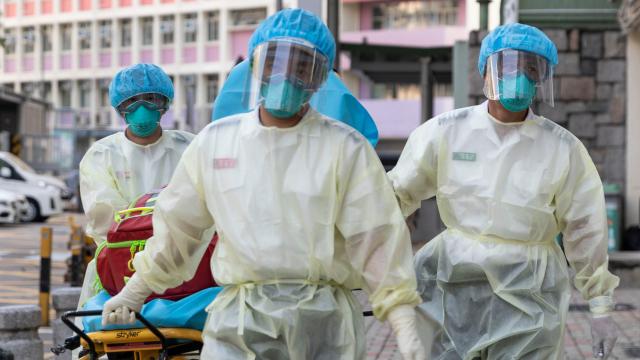Scientists in Hong Kong report they have found a man who was reinfected by the coronavirus that causes covid-19, supported by concrete genetic evidence. This would be the first documented case of someone being infected twice, but it’s still unclear if this patient is an outlier or if vulnerability to reinfection is common.
According to the report, written by researchers at Hong Kong University’s Department of Microbiology, the man in question is a 33-year-old computer technician and local resident who caught his initial infection of the novel coronavirus, SARS-CoV-2, in late March. He developed a cough, sore throat, and fever for about three days and was soon hospitalised, though his symptoms had already dissipated by then. Two weeks later, he was discharged with a clean bill of health, having tested negative for the virus twice.
On August 15, the man again tested positive for SARS-CoV-2 at an airport screening following a flight home from Spain. This time, he reported no symptoms, though he was still hospitalised and monitored again. While his doctors did suspect at first that he may have simply had a persistent infection that went unnoticed, a subsequent genetic analysis of the virus found during both his hospital stays seems to rule that out.
The genetic analysis revealed that the man was infected by two distinct strains of SARS-CoV-2, from two completely different lineages of the virus documented elsewhere. Though the man never felt sick the second time around, his body did show signs of a typical infection, such as elevated levels of inflammation, a relatively high viral load that gradually declined over time, and the production of new antibodies to the virus later on in the infection (perhaps importantly, no antibodies were found during the first infection nor at the beginning of his second infection)
The researchers themselves were convinced, stating that they’ve found the first well-documented case of reinfection by SARS-CoV-2.
“The confirmation of reinfection has several important implications. First, it is unlikely that herd immunity can eliminate SARS-CoV-2, although it is possible that subsequent infections may be milder than the first infection, as for this patient,” they wrote. “Second, vaccines may not be able to provide life-long immunity against covid-19.”
As important as this case is, there are still limitations to the findings, assuming they’re valid. For one, though journalists have made available the contents of the report, it hasn’t yet gone through outside analysis by other scientists.
Secondly, this case alone can’t tell us if reinfection will become a common occurrence for people during this pandemic or if it merely represents a rare oddity. Experts have generally been sceptical of widespread reinfection happening so soon, citing evidence that immunity to other coronaviruses can last at least close to a year or longer. It also can’t tell us what factors may affect a person’s chances of reinfection.
In this case, the researchers only had one sample available from the first infection to test for antibodies, collected under 10 days in. Because people can develop antibodies to the coronavirus later than that, it’s still possible the man’s body mounted an antibody response initially. That’s a crucial aspect of this to pin down, because most people seem to develop antibodies during infection. If reinfection is more likely to happen in those without antibodies made the first time, that may narrow the possibility of reinfection happening in most survivors — at least as soon as this case seems to have happened, just five months between infections.
Scientists generally agree that people who don’t develop antibodies to the virus tend to have a more mild case to begin with than others. And as the authors note, the second infection may be even milder, thanks to other parts of the immune system still remembering the virus, particularly T cells. So the personal danger of reinfection may be lessened further.
At the same time, there are many unknowns about what could influence the course of a second infection or a person’s ability to transmit the virus to others during this reinfection.
For now, the possibility of reinfection is definitely something for doctors and scientists to keep an eye on and study further, especially given this report. But we simply don’t yet know how relevant it will be in the grand scheme of things.
